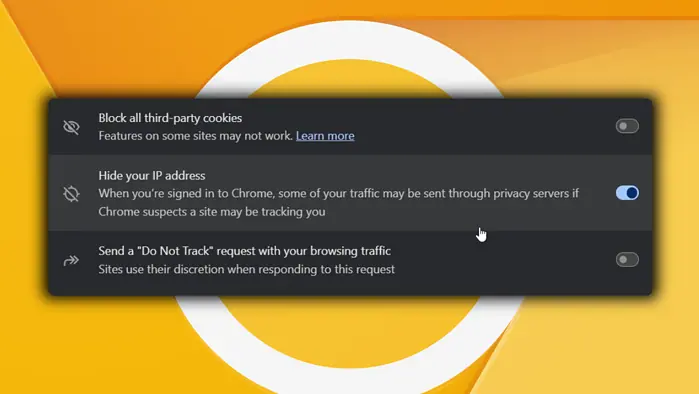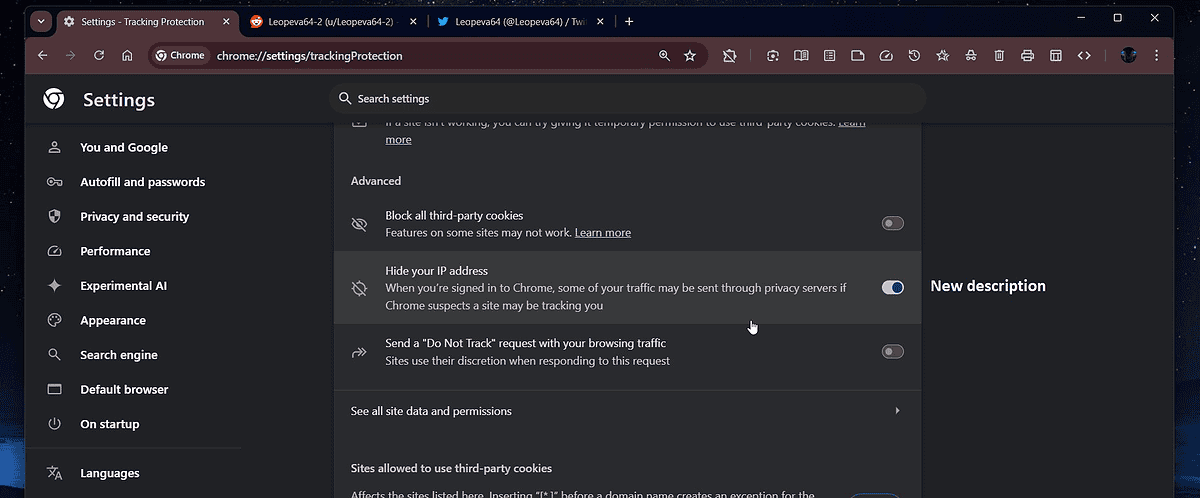Google Chrome may still send your traffic data even if you hide your IP address
Google has been testing this feature for quite some time
2 min. read
Published on
Read our disclosure page to find out how can you help MSPoweruser sustain the editorial team Read more
Key notes
- Google Chrome tested a feature to “hide your IP address”.
- The feature is currently in Chrome Canary, the browser’s experimental channel.
- But, a recent change suggests it can still send your traffic data if there’s a suspicion of illegal tracking.

Google Chrome is arguably one of the most popular, if not the most used browsers around. But with that popularity, comes a problem where some users want to hide their IP address when browsing for more security.
The popular browser first introduced this “Hide your IP address” toggle a little while ago in Google Chrome Canary, the experimental channel of the browser. The option to toggle it on lives in Settings > Privacy and security > Tracking protection. But now, it seems to have updated the description of this feature.
The new description, as shared by a trusted browser enthusiast @Leopeva64 on X, is a little more concise. It reads that “some of your traffic may be sent through privacy servers if Chrome suspects a site may be tracking you.”

The previous description reads, “When you’re signed in to Chrome, this setting can limit what suspected trackers can see as you browse. When a page loads, some requests for content get sent through privacy servers.”
But that’s not something to worry about. As it clearly states, the reason why Google still sends your data to the “privacy servers” is only when there’s a suspicion that a website is tracking your activity. That way, the browser can warn you immediately.
With that said, however, it seems like Google launched this feature (& the subtle, quiet change of its description) in a controlled rollout scheme. It means that even if you’re in the Canary channel, there’s still a chance of you not seeing the toggle. We’re not even able to replicate it due to this barrier.
And that’s not the only, recent change of a description that Google has been making in the past months. Google Chrome has been the subject of controversy amidst a $5 billion lawsuit settlement over tracking users’ activity in the Incognito mode.










User forum
0 messages